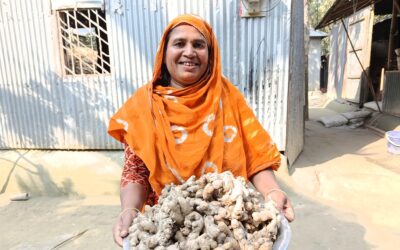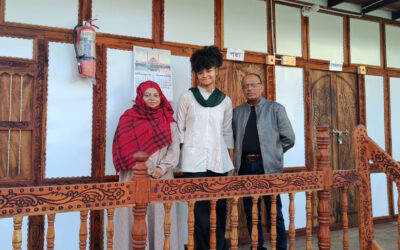Without people helping one another, a community cannot progress, because all solutions to their development and resilience become unsustainable.
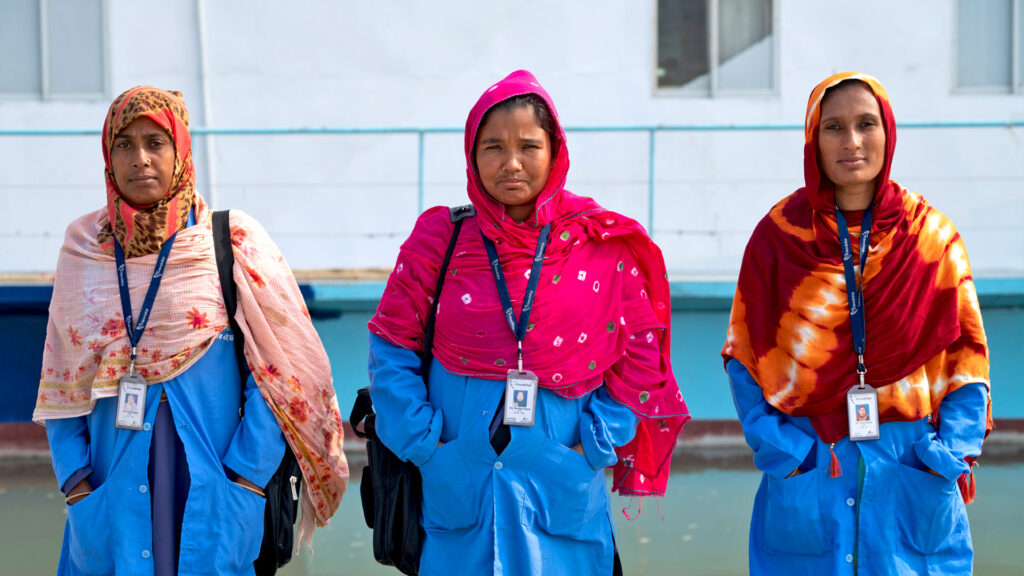
by Iffat Ara Sharmeen,
1 September, 2025
In a world where inequality and division continue to hinder collective progress across economies, Friendship has been uniquely building resilience among the most vulnerable communities with practical and scalable solutions that the communties themselves can implement, innovate, and sustain with little support. These solutions culminate into development that empowers the people with tools and knowledge, as well dignity and hope.
Friendship believes that any support should add to their confidence and resilience rather than take away from them. It should not seem like handouts or instances of tokenism, but rather an extension of friendship that uplifts their lives without fostering dependency.
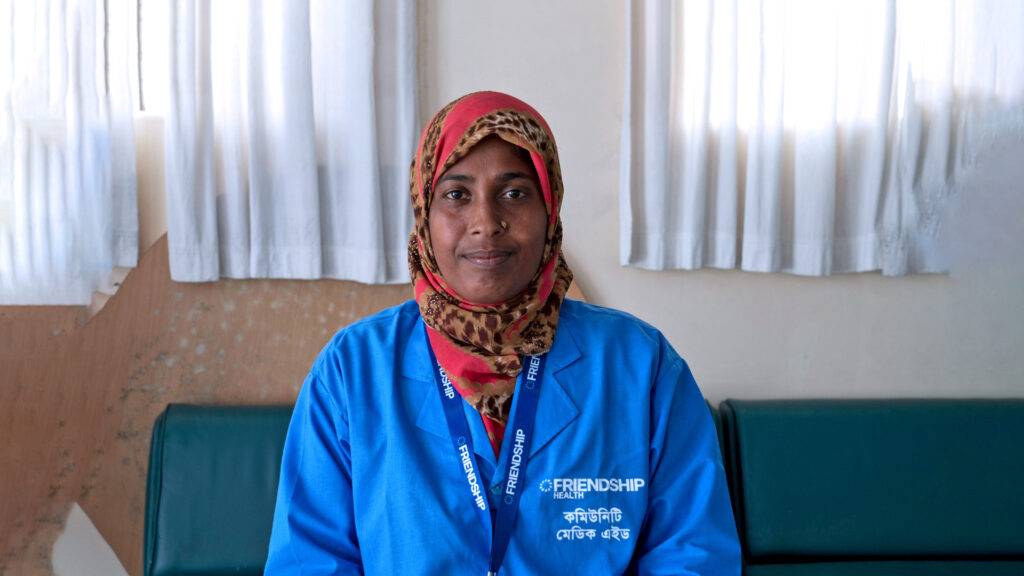
Friendship’s most defining innovation is its three-tier healthcare model, with the biggest, most community-driven tier being the Friendship Community Medic-aides (FCMs), who are mostly women. Drawn from their own communities, FCMs provide primary care, raise awareness, support safe deliveries, and connect people to formal healthcare through tools like the mHealth app.
By raising awareness on issues such as nutrition, vaccination, and reproductive health through courtyard sessions, they bridge critical healthcare gaps in remote areas while also empowering women, driving meaningful change in communities disproportionately affected by climate and social vulnerabilities.
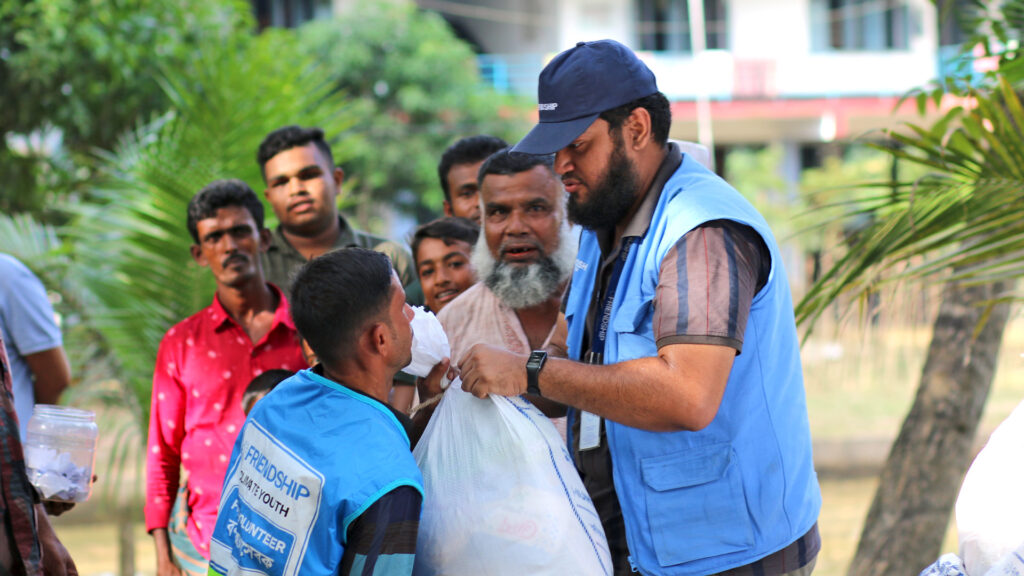
Women are disproportionately affected by climate change. In climate-vulnerable communities, they bear more pressure of household tasks that can be affected by climate change and disasters, such as securing food and fetching water. Climate change also affects their reproductive health, forcing girls to quit school, which drives gender inequalities further. Poverty and powerlessness often lead these women and girls to become victims of violence, human trafficking, and child marriage.
Thus, empowering women to help their communities not only elevates their stance but also gives them the confidence to fight back.
Saving lives becomes an even bigger challenge during times of disaster. Friendship volunteers handpicked from communities meet urgent relief needs, such as distributing food, water, and medical aid, conducting search and rescue and connecting with local authorities. They also ensure that disaster victims needing medical support are able to reach the nearest medical facilities. Volunteers take particularly vulnerable groups such as women, children, and livestock to the nearest shelters and plinths for safety.
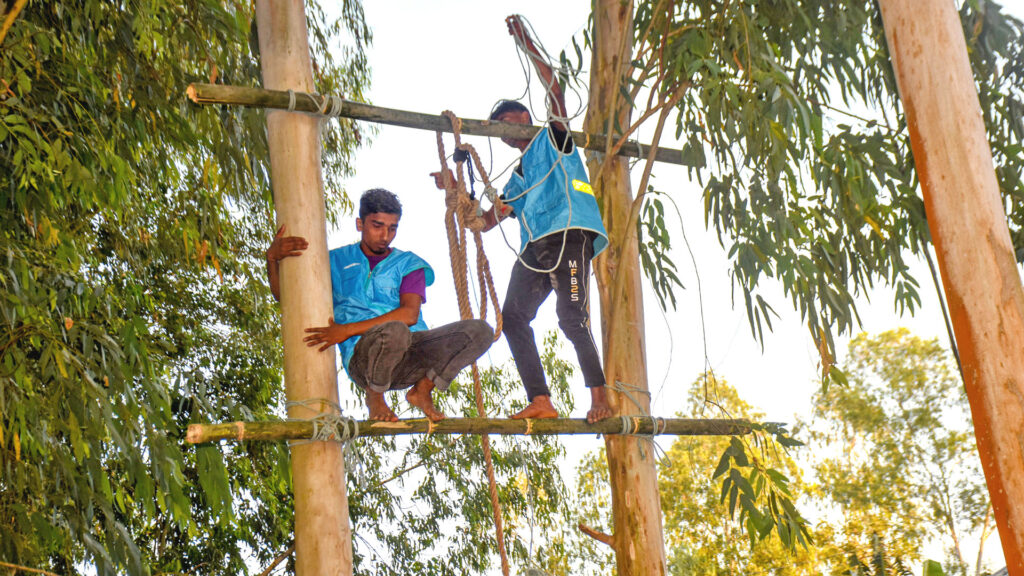
After a disaster, they actively help rebuild and repair damage to infrastructure and other facilities. Better-off families donate staples to those less fortunate via food banks. These people-driven initiatives show how resilience grows from within, with Friendship acting as a catalyst rather than a provider.
Climate change chips away soil, hopes, and dreams of riverine and coastal communities. It also threatens a loss of local solutions and indigenous knowledge among those communities. To save lives, it is not just important to support them. It is crucial to uplift them from their current issues. By preserving and enhancing their skills and knowledge, that sort of empowerment is possible, to keep sustainable solutions and build more resilient communities.

